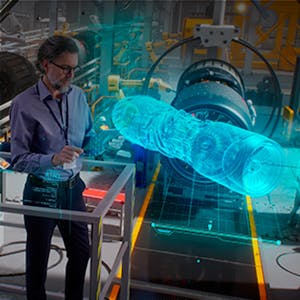The "Modelling and simulation of mechanical systems" course at Università di Napoli Federico II offers a deep dive into the principles and methodologies of transforming mechanical systems into mechatronic systems using virtual models. The course focuses on modern mechatronic systems integrated with sensors and actuators in robotics, controlled electro-hydraulic actuators, and smart devices. Throughout the course, students will learn to schematize real systems, mathematically model multi-physics systems, and develop Matlab/Simulink models.
The course is divided into three modules, each delving into specific aspects of mechatronic systems:
By the end of the course, students will have gained a strong foundation in mechatronic systems, enhancing their ability to model and simulate modern mechanical systems effectively.
Certificate Available ✔
Get Started / More Info
The course modules cover computer vision for mechanical systems control, modelling and simulation of electro-hydraulic shake tables, and design and development of smart tires, offering a comprehensive understanding of mechatronic systems and their applications.
Module 1 of the course focuses on computer vision for the control of mechanical systems. Students will explore artificial vision systems, vision system models, applications for motion measurement, and practical challenges related to this field. By the end of the module, students will have gained a strong understanding of computer vision applications in mechatronic systems.
Module 2 delves into the modelling, control, and simulation of electro-hydraulic shake tables. Students will learn about electro-hydraulic systems, modelling and control of real electro-hydraulic actuation systems, simulation in Matlab/Simulink, and the analysis of experimental data acquired on a real shake-table. Practical exercises and challenges will enhance students' skills in this area.
In Module 3, students will focus on the design and development of smart tires. This module covers smart tire systems, analytical modelling of smart tires through the modal expansion method, simulation in Matlab of the smart tire strain behavior, and the analysis of experimental strain data acquired on a real smart tire. Practical exercises and challenges will enable students to develop a comprehensive understanding of smart tire technology.
Materials Science for Technological Application provides an introductory knowledge of key concepts in materials science, exploring the impact of materials on society...
This course provides an introduction to the dynamics of particles and bodies in 2D motion as applied to engineering systems and structures.
L'Art des Structures 2 provides comprehensive understanding of trusses, beams, slabs, and frames in modern construction, enabling you to analyze, pre-dimension,...
Quantum Mechanics provides an introduction to the Schrödinger wave equation, atomic and molecular structural behavior, and modern quantum chemistry numerical solution...